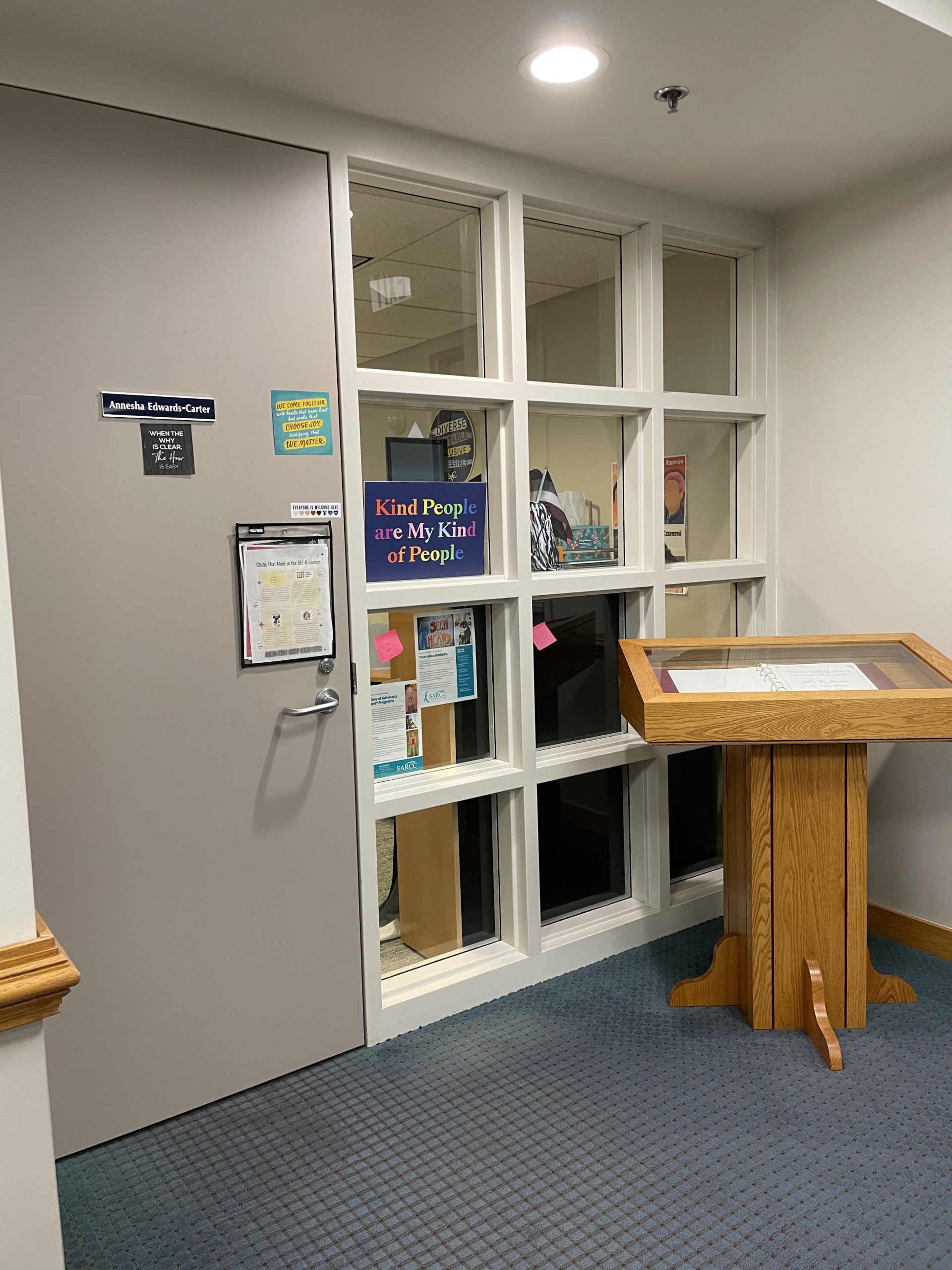
By Jess Benninger ’26, assistant editor
LVC prides itself on its diversity, equity, inclusion and belonging department.
Following the departure of Khalil Brim, a post-graduate fellow and LVC alumni loved by students, many members of LVC’s campus are wondering how the future of the DEIB office will look.
Currently, the DEIB department is comprised of Dr. Felicia Brown-Haywood, the vice president of diversity, equity and inclusive excellence, and Annesha Edwards-Carter, director of diversity, equity and inclusive excellence. Brown-Haywood assures community members that the DEIB office can continue operation with two staff members.
“DEIB work is the responsibility and expectation of every member of our campus community,” Brown-Haywood said. “The DEIB division partners with units across campus to facilitate strategic initiatives and programming.”
Brown-Haywood also shared that on-campus research is being conducted to assess the needs of the student body and DEIB office.
“Dr. Chris Bijoux’s SWOT analysis will help the college understand and make decisions about appropriate staffing numbers, roles and responsibilities,” Brown-Haywood said.
According to LVC President Dr. James MacLaren, the strengths, weaknesses, opportunities and threats (SWOT) analysis will provide more information regarding the College’s next steps in DEIB.
“The results of this independent analysis will be applicable to the whole of campus and not siloed to the DEIB administrative area,” MacLaren said. “We expect the SWOT analysis to be uncomfortable and deeply informative about how the College should move forward.”
Many students have their own ideas about how to improve the commitment to DEIB on LVC’s campus.
“More people should be hired for the DEIB office, but it shouldn’t just fall on faculty or administration,” Caeleb Smith, a junior English and creative writing double major, said. “The students should have a say on who LVC hires to fill in spots for the DEIB office because student opinions matter.”
Smith also commented on the importance of the DEIB department more generally.
“DEIB shouldn’t have to be seen as an ‘extra’ resource on campus—it should be viewed as a necessary resource that everyone, not just BIPOC and LGBTQ+ students, should be aware of,” Smith said. “DEIB is important in our society; not giving it the attention it deserves promotes the idea that it doesn’t exist or isn’t important to know and learn about. People cannot and should not walk around campus assuming that DEIB isn’t an important part of our society because it completely invalidates the lives of others and disregards their existence as a whole.”
With all of these suggested changes in mind, LVC’s administration assures that it is working hard to promote DEIB on campus.
“I want to note that the work of diversity, equity, inclusion and belonging is the responsibility of each member of the LVC community, every day,” MacLaren said. “We know a lot more work needs to be done—in hiring, in climate and in areas the SWOT analysis will spotlight—and the whole campus will need to collaborate to get to where we need to be. The work is ongoing and unending and requires continual evaluation and improvement.”

